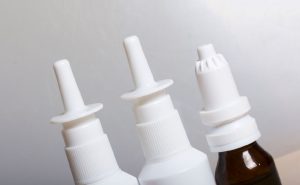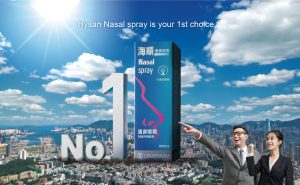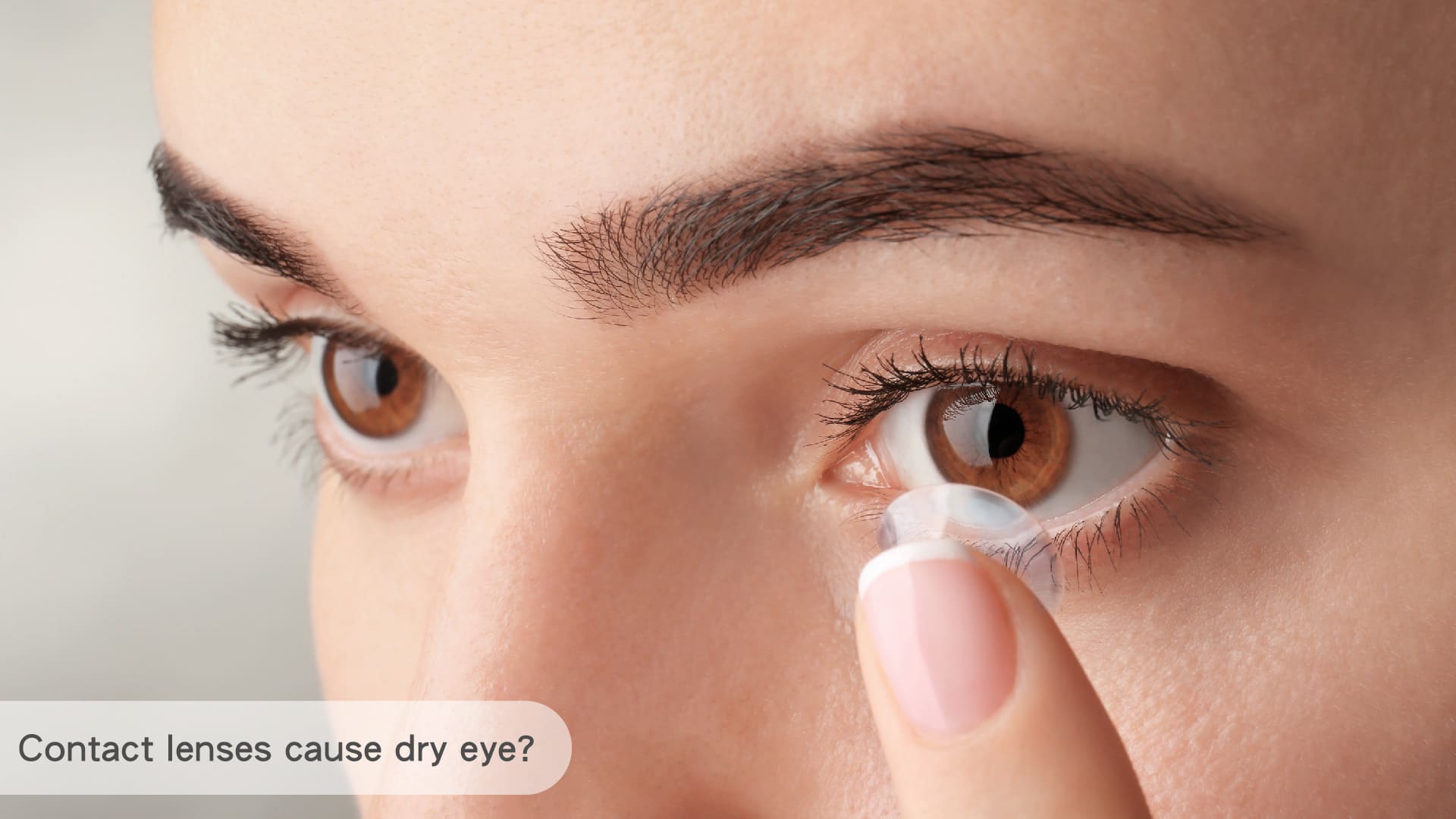It’s essential to understand what nasal congestion is before choosing a nasal spray.
Nasal congestion is one of the symptoms derived from nasal allergies and is often the most troubling for sufferers. Nasal congestion can lead to poor sleep and subsequent daytime fatigue.
Many turn to nasal sprays for relief as they act directly on the blood vessels of the nasal mucosa, alleviating nasal congestion rapidly. Nasal congestion is caused by swelling of the blood vessels inside the nasal cavity, and nasal sprays can directly target the nasal mucosa, shrinking it.

Here are four reasons why feeling nasal congestion when you lie down.
There are various reasons for nighttime nasal congestion, with different factors worsening symptoms. For example, cooler temperatures during autumn and winter nights make people prone to nasal congestion, particularly those already susceptible to nasal allergies. Common reasons for nighttime nasal congestion can be broadly categorized into the following four types:
1.Allergic rhinitis:
Nasal congestion is one of the most common symptoms of nasal allergies. Allergic rhinitis can have numerous causes, including dust mites, mold, pet dander, pollen, and air pollution. Allergic reactions often occur at night because the body’s natural steroid to suppress allergic reactions—cortisol—decreases its secretion at night and starts producing it in larger quantities only at dawn. Therefore, allergic reactions such as nasal congestion, runny nose, or asthma are particularly prone to occur at night.
2.Deviation of the nasal septum:
The nasal septum, composed of cartilage and bone, divides the nasal cavity into two sides. If the nasal septum is deviated, it can make one side of the nasal cavity smaller. Patients with a deviated nasal septum may experience nasal congestion on both sides. One side may be narrower due to the deviation. At the same time, the other may be blocked due to chronic inflammation of the nasal mucosa, causing swelling and thickening of the mucosa, thus blocking the wider side.
3.Postural issues:
Lying down can cause nasal mucus to flow backward. If the nose’s self-cleaning function is normal and the nasal mucosa is not swollen, there will be no symptoms when lying down. However, if mucus is thick due to allergies or sinusitis, lying down can easily cause nasal congestion.
4.Temperature changes:
People with nasal allergies are sensitive to changes in temperature and humidity. When the temperature drops at night or air conditioning is used on summer nights, nasal allergies can occur, leading to nasal congestion.
Nasal sprays can be divided into three categories.
Nasal sprays are commonly used medications for treating allergies. They are available not only in clinics and hospitals but also in pharmacies and drugstores. Choosing the most effective one can be challenging with a wide variety of nasal sprays available. Selecting the appropriate nasal spray is crucial, as careless usage can lead to severe side effects. So, before purchasing, it is best to consult with healthcare professionals or pharmacists at nearby community pharmacies.

1.Vasoconstrictors:
Common drug ingredients: Oxymetazoline/Xylometazoline
The most common nasal sprays on the market are also known as decongestants or sympathomimetic agents. Hysan® Nasal Spray’s main ingredient is Xylometazoline 1mg/ml, which constricts the blood vessels of the nasal mucosa, reducing swelling and thus improving nasal congestion. However, it does not treat other nasal symptoms such as sneezing or runny nose.
Decongestants work very quickly, usually taking effect within a few minutes after use, making them suitable for situations requiring rapid relief from nasal congestion. In clinical practice, they are often used for “emergency” relief, sometimes combined with steroid nasal sprays or antihistamines to improve allergy symptoms. *It is recommended to avoid using decongestants for more than seven consecutive days.
2.Steroid nasal sprays:
Common drug ingredients: Fluticasone/Mometasone
Currently the mainstay of treatment for allergic rhinitis, these prescription drugs require a doctor’s prescription. Steroid nasal sprays are highly effective maintenance therapy for allergic rhinitis, offering better efficacy than oral antihistamines or antihistamine nasal sprays. They work by suppressing inflammation of the nasal mucosa, relieving symptoms such as nasal congestion, runny nose, and sneezing, and can also improve conjunctivitis.
Steroids have a slower onset of action, taking 6 to 12 hours to be effective upon initial use, and require several days of continuous use to achieve optimal efficacy. Therefore, they are often used long-term, contrary to the characteristics of decongestants. Suppose symptoms are controlled after using a steroid nasal spray. In that case, doctors usually recommend adjusting the dosage to the “lowest effective dose” to maintain control of allergic rhinitis while reducing the impact of side effects. *These products are prescription drugs, so consult with healthcare professionals before purchasing from a pharmacy.
3.Antihistamine nasal sprays:
Common drug ingredient: Azelastine
Antihistamine nasal sprays work very quickly, with effects appearing as soon as 15 minutes, although they may not relieve nasal congestion as effectively as steroid nasal sprays. However, they can alleviate symptoms such as runny nose, sneezing, and itching. *These products may cause drowsiness and fatigue, so consult with healthcare professionals before purchasing from a pharmacy.
What problems can preservatives in nasal spray cause?
As we enter the transitional seasons, allergic diseases remain one of the most common urban ailments among Hong Kong people. For many nasal allergy sufferers, relieving nasal congestion is a primary concern, leading them to pharmacies searching for nasal sprays. It is worth noting that most nasal sprays contain small amounts of preservatives to prevent bacterial growth. However, old-fashioned preservatives, while capable of killing microbes, also damage the lipid layer of the nasal mucosa.
Popular nasal sprays on the market, such as Hysan Nasal Spray, are beloved by many because they can quickly and easily relieve nasal congestion by causing the blood vessels in the nasal cavity to shrink soon. Many products contain preservatives, such as Benzalkonium chloride, despite criticism of these preservatives for some time. However, due to their relatively low cost, they are still chosen to ensure product quality.
The role of preservatives is to kill bacteria in drug formulations, thus maintaining the microbial quality of the solution after opening a multi-dose container. However, Benzalkonium chloride can cause allergic reactions such as swelling, redness, and itching.

Preservative-free nasal sprays—leading the way in medical application technology
hysan® Nasal Spray, designed by the German pharmaceutical company Ursapharm with the patented 3-K® system, can prevent microbial growth in the bottle even without preservatives and can be stored for up to 6 months. Next, we will explain in detail the technology and structure of the 3-K® system and the components and effects of the hysan® Nasal Spray.
hysan® Nasal Spray does not contain any preservatives, and the 3K® System achieved through technological innovation is an advanced application system used to dispense liquid drug formulations, ensuring the contents remain sterile indefinitely. Therefore, the use of preservatives such as Benzalkonium chloride is unnecessary. The core design of the 3K® System is the Non-Airless Pump, which effectively prevents contamination of the container contents.
“Without preservatives” will become a new direction in world medical application technology!
Consumers are increasingly concerned about the ingredients of their products and are becoming more selective in their choices to prevent potential allergic risks. Therefore, preservative-free nasal sprays have a decisive competitive advantage. The 3K® System has made significant contributions to the safety and tolerability of nasal sprays, and this innovative technology will continue to lead the future of nasal sprays in Europe and beyond.
hysan® Nasal Spray, without preservatives, provides a more reassuring medication experience.
hysan® nasal spray is for nasal use and contains the alpha-sympathomimetic agent xylometazoline. It is used for short-term treatment to reduce the swelling of nasal mucosa.
Ingredients and Characteristics
- Main ingredient: Xylometazoline 1mg/ml
- Patented bottle design 3K® System does not contain any preservatives. The drug inside the bottle can prevent microbial growth even without preservatives and can be used for six months after first opening.
- The core design of the 3K® System is the Non-Airless Pump, which effectively prevents cross-contamination of the contents.



